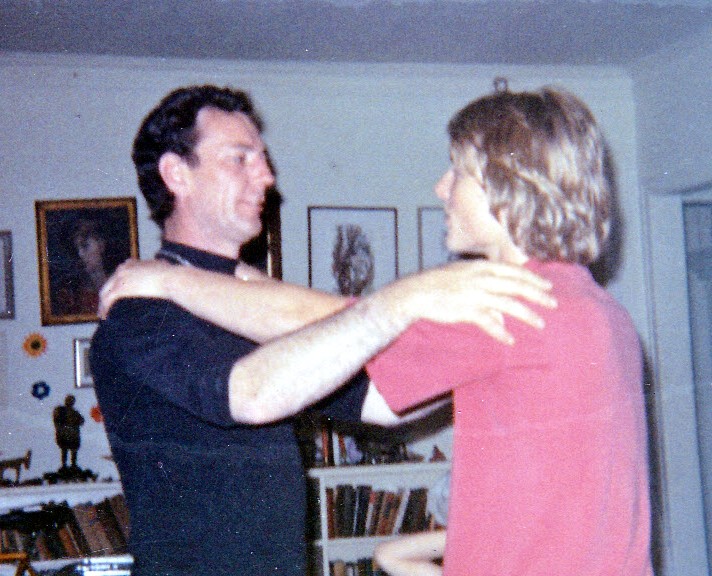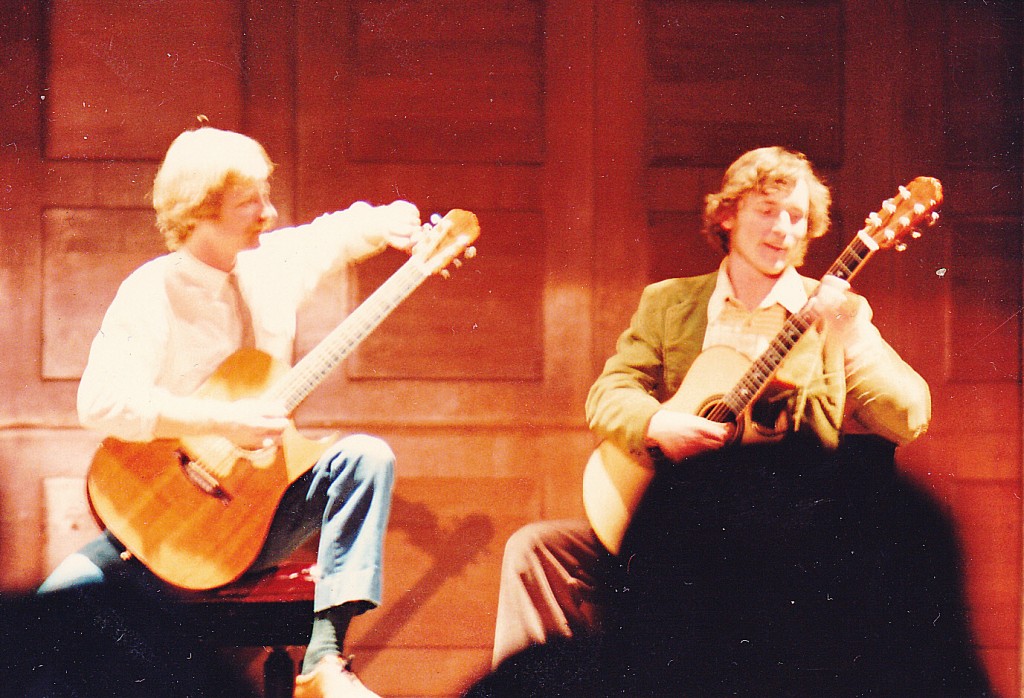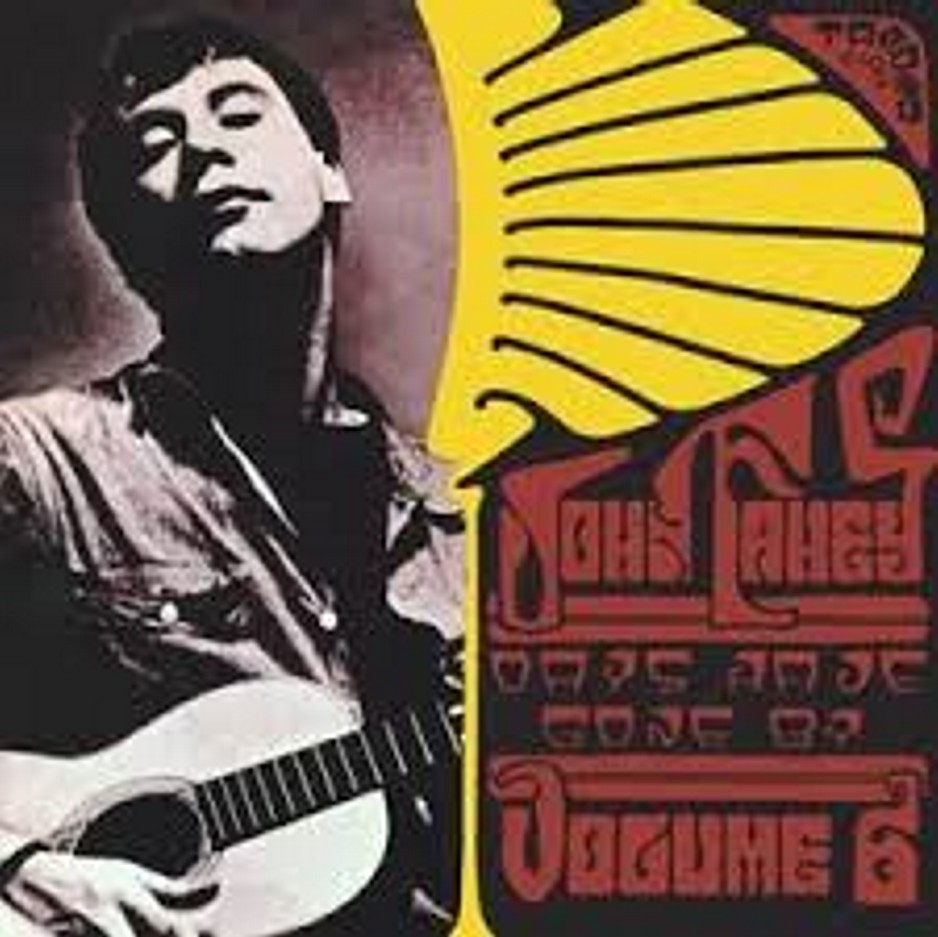This is my third post about the American finger-style guitarist John Fahey, one of a series I’ve titled Meetings With Remarkable People.
After our show at the Great American Music Hall, Fahey was transcendentally drunk, but he managed to make it to the party at my brother Nick’s place on Green Street.
I was still charged with the nervous buzz of performing and was putting on the brakes by having a glass of wine. (In all honesty, I did not consume any other intoxicants because I was on tour and I’d found that they interfered with my playing). Thirty or so people had gathered in the four-room apartment, and my brother had set out savory edibles, drinkables, and smokables.
When Fahey arrived, a stir went through the partiers. Everyone wanted to talk to The Legend or at least observe the beast up close.
I was surprised he could walk, let alone find the place and climb the stairs.
My brother and his ex, Paige, were among Fahey’s greatest admirers. They had come upon his records over 15 years earlier, and for them as with others there his music and album-jacket musings served as important expressions of their existential outlook, their style.
Fahey waded through the packed rooms, grabbing a bottle of wine on the way, and came to the circle where I stood.
“Anybody have some coke?” he asked.
As it happened, someone did have a couple of grams, intended to be shared. She produced the packet, assuming we’d now move to a table to share the ritual of chopping and snorting those mounded white lines.
But Fahey snatched it from her hand, ripped it open, and dumped the whole thing into his mouth, between lower lip and gum.
We were stunned at this breach of etiquette.
Fahey became more animated, but when he spoke it was utterly non sequitur and often crude. My sister-in-law and my niece were in the group, and a hint of consternation came into Paige’s eyes: Was this teetering boor really the magician she’d admired for so long?
After another few minutes he asked “Anybody got Quaaludes?”
Without thinking, one of our number rummaged in her pocket and produced three tablets. Fahey grabbed them, popped them into his mouth, and washed them down with wine.
Amazingly, Fahey remained standing as the evening wore on. Eventually people began to drift away. When my niece said she had to go, Fahey offered to give her a ride.
My niece was twenty-one and a stunningly beautiful woman; Fahey’s lascivious intent seemed clear. When she declined his offer, he kept at her: “Where d’you live?” “Mission district.” “That’s right on the way to my motel!” “No thanks.” “C’mon, I rented a nice car. Show you my car.”
My niece stared at him with contempt. “You disgust me,” she told him.
Swaying, he insisted: “Come on. Give you a ride home. Real nice car.”
She came back with a ferocious retort that remains in my memory as one of the most withering ever.
In addition to being beautiful, my niece is smart, assertive, and not impressed by fame. She gave him a baleful look and snarled: “You know what I think of you? If you were an onion, I’d peel you layer by layer and stick pins in your core.”
She left. Sometime later Fahey left, leaving a vacuum on several levels: the absence of his physical presence and a void of disillusionment among his devotees. This hero had not been subtle, only rude, selfish, sexist, out of control.
I didn’t meet or perform with Fahey again. I understand that he pulled himself together, fell apart, pulled himself together, making many more recordings. I’ve never listened to any of these later albums.
So, what is to be learned from this degenerate, this reprobate? The answer is complex and perhaps entirely personal.
First, I admire Fahey for following his fascinations, despite the impediments of substance abuse and limited technical skill. He courted his muse with what he had, stuck doggedly to his own jagged path.
Second, he conveyed an unexpected gift upon me.
Sixteen years earlier I had fallen truly, passionately in love with the classical guitar while listening to an album of Andres Segovia playing the music of Sor and Tarrega. The music moved me deeply, spoke to my soul; its intricacy delighted me. When I started learning to play, I had neither professional aspirations nor hope of eventual proficiency, only ardor. I was like a love-drunk kid who knows himself to be unworthy of his true love yet still appears beneath her window with flowers.
But despite my passion, I realize now that I listened at the music. I listened to it from outside, the way you might look at a sculpture on a pedestal. It’s marvelous, compelling — but it’s over there and you’re over here.
It was Fahey’s magic, not Segovia’s, Fahey’s personality or élan vital, that put me inside the music. Fahey invited me to step inside the sound of a solo guitar — of my own playing — into a virtual 3-D space with fascinating auditory phenomena occurring above, below, to every side.
Suspended among fireworks in the night sky: I think that’s how Fahey heard it and therefore how he conveyed it to us.
Sometimes a person possesses just one, simple, gift; but its giving can still transform others. Fahey put me inside the music and changed the arc of a lifetime.
For that, thank you, John.





Ahhhh…..so familiar. Well put Daniel. I enjoyed the story and relate so much to the dichotomy, having known so many musicians and been confused by the inner and outer workings of them. I’ll be in touch soon! xo
Hello, Peg!
Thanks for visiting my blog. It’s been fun writing about remarkable people I have known or at least encountered. I decided early on to write only about dead ones, so that all the currently-living remarkable people I know don’t get their knickers in a twist about what I wrote, or didn’t, about them. For other readers: Peg Tassey is a marvelous Vermont-based musician who has been ahead of the curve all her life, with a wide range of show-stopping talents. Peg sang Dylan’s “Masters of War” at a concert that occurred just about the time of America’s (first) invasion of Iraq, and she meant business and it sent chills up my spine. Please do keep in touch, Peg!
Thanks for the interesting read. I, too, attended a party with Fahey in the early 80s. He was nothing less than a menacing, narcissistic drunken asshole. I never listened to a note of his music again. That’s how utterly rude and unpleasant the man was.
Hi, Terry,
Thanks for writing! Yeah, I’m sure many people would agree that by then he’d lost his steering and brakes and wasn’t wearing a seatbelt, either. George Winston, though, tells me that he was also sweet and fun when in smaller gatherings, when he wasn’t acting out the persona of the monster freakoid. There’s another follow-up comment that addresses similar points — check it out!
Here are two excerpts from Maya Angelou — not at her most eloquent, but good advise that i don’t see as being either judgmental or hoodwinked by art-fraud.
“Some entertainers have tried to make an art of their coarseness, but in their public crudeness they have merely revealed their own vast sense of personal inferiority. When they heap mud upon themselves and allow their tongues to wag with vulgarity, they expose their belief that they are not worth loving and are in fact unlovable.”
Elsewhere Angelous continues, “Never put your sheroes and heroes up on pedestals; placing them on pedestals is setting yourself up for disappointment. You must take the good that people do and put bright light on that good, but human beings can never withstand such light without showing their shadows and warts. All mortals have their shortcomings and weaknesses. Their skills and deeds are what we must applaud. Don’t fall victim to the cult of personality.”
Hello, David,
Thanks for reading and commenting. Angelou’s comments are spot on. We’re all kinder to ourselves — and to the people we admire — when we keep them human in our minds and theirs. Check out my posts on Nina Gitana, in which I assert that the deference her followers treated her with actually robbed her of a chance to become more fully human. Life is indeed complex.